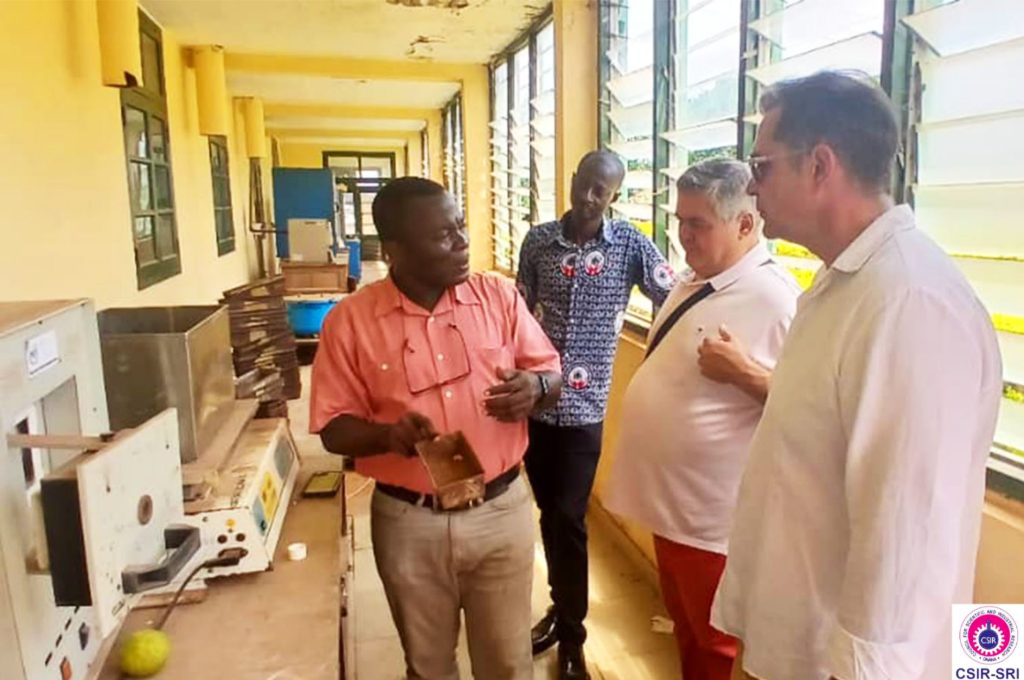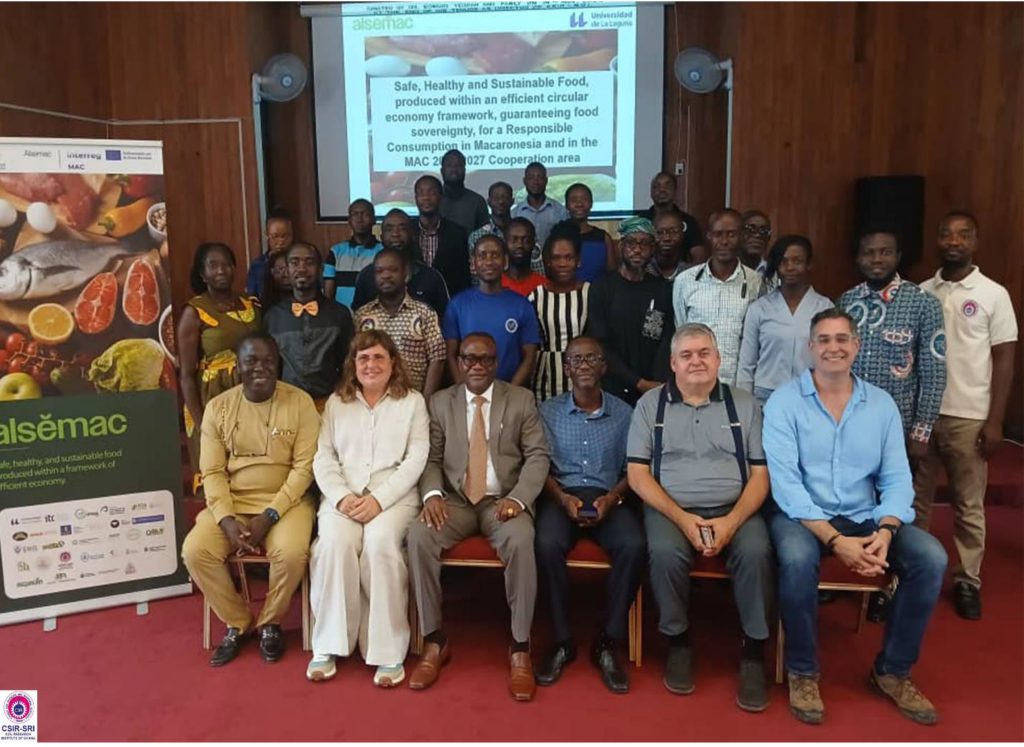ALSEMAC Project Team Engages CSIR-Soil Research Institute in Strategic Collaboration Visit
The ALSEMAC Project Team has completed a two-day strategic visit to the CSIR-Soil Research Institute (CSIR-SRI) in Kumasi, Ghana, as part of its ongoing efforts to strengthen partnerships in research and innovation for sustainable food systems. This engagement, which took place from 4 to 5 June, brought together leading scientists and researchers from both institutions to explore collaborative opportunities aimed at enhancing food security and promoting environmental sustainability. The ALSEMAC (Advancing Local Solutions for Environmentally Managed and Agroecologically Conscious Agriculture) project is committed to promoting safe, healthy, and sustainable food production systems. Its mission closely aligns with CSIR-SRI’s mandate to advance soil science and organic fertilisation, transforming organic residues into products of high agronomic value while reducing the carbon footprint.
During the two-day interaction, the teams shared insights on research priorities, discussed mutual areas of interest, and identified pathways for collaboration on projects concerning soil health, agroecological practices, climate-smart agriculture, and sustainable land use. The visit included lab tours, field demonstrations, and technical presentations from CSIR-SRI scientists, providing the ALSEMAC team with a firsthand view of the Institute’s cutting-edge work.

Dr. Dugan explained a point to the ALESMAC team.
Dr Angel Jose Fernández, Professor of Toxicology at the La Laguna University in Tenerife, Canary Islands, Spain, and the Team Lead for the ALSEMAC Project, emphasized the importance of partnerships in tackling the complex challenges facing food systems.
“This collaboration with CSIR-SRI represents a major step toward integrating scientific expertise and local knowledge to develop resilient agricultural practices that not only boost productivity but also safeguard public health and the environment,” he said.

Dr Emmanuel Dugan, a senior research scientist and project lead at CSIR-SRI, expressed optimism about the partnership’s potential impact, noting that the synergy between the two institutions could lead to transformative outcomes in Ghana and throughout the West African region. The visit concluded with a commitment from both parties to develop a formal framework for collaboration, which will include joint research initiatives, knowledge exchange Programmes, and capacity-building activities.
Other members of the ALSEMAC project team included Ricardo Didz from the Environmental Analysis Department at the Technological Institute of the Canary Islands and Dr Maria Del Nar Bernal Suarez, who is also from the same institute.